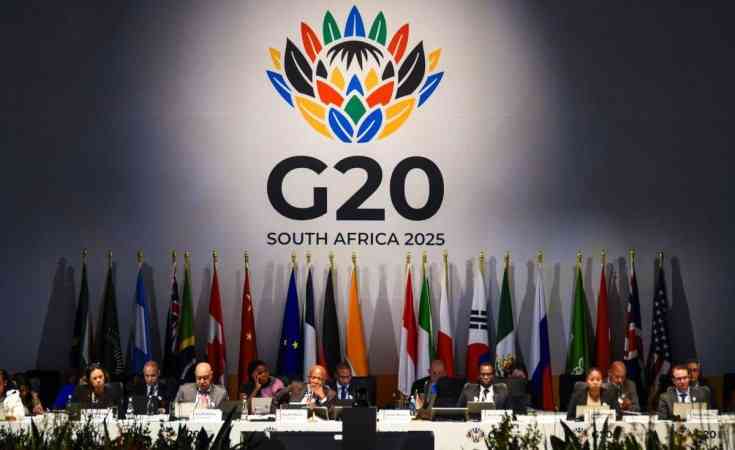
BELOW is the final part of a series from a report published by Friedrich Naumann Foundation for Freedom, which was launched on November 18 in Harare:
As part of the research survey, that was part of this study, participants were asked to identify factors they believed were drivers of surveillance. These are some of their answers:
“Digital authoritarianism is being promoted as a way for governments to control their citizens through technology, inverting the concept of the internet as an engine of human liberation.”
“Authoritarian governments use surveillance to monitor the activities of opposition parties, civil society organisations (CSOs), journalists and human rights advocates and activists who present a threat to governments.”
“In most cases the main purpose of digital surveillance is to consolidate power, undermine human and consumer rights while enforcing capitalist systems of extraction of citizen’s data which include surveillance, automated decision making, and facial recognition systems. They use surveillance to track terrorists and criminals, snoop on political opponents, and spy on citizens.”
Fundamental rights seen as being eroded by surveillance include the right to free expression, access to information and the right to association and assembly.
“Digital surveillance has a negative impact on freedom of expression - as experienced in Zambia over the last 10 years. I believe the last government stifled free expression so badly they didn't even notice how much the people hated them.”
State surveillance as suppression tool
- Global agency downgrades Zimbabwe’s growth projections
- Sudan Darfur crisis: ICC to try war crimes suspect
- Zim to get Malawi maize this monthend
- Global agency downgrades Zimbabwe’s growth projections
Keep Reading
Surveillance has been used in Zambia and Zimbabwe to target and persecute prominent civil society leaders, opposition political leaders and party members and other dissenting voices.
In Zambia, Huawei technicians allegedly helped the government access phones and social media pages of bloggers critical of the then Zambian President Edgar Lungu's government.
Zambia’s cyber-surveillance unit was able to locate the bloggers' locations, leading to their arrest, although there was no confirmed evidence that Huawei approved the use of its technology for the purpose.
In Zimbabwe, information collected through communications surveillance was used by the state to dispute a claim that two female members of the opposition were kidnapped, tortured and sexually assaulted by suspected state security agents or members of the ruling party.
The Minister of Home Affairs at a press conference shared what he claimed was the location data from both women’s mobile phones and car movement to show that they had not been kidnapped but rather wilfully spent time away from Harare.
This incident demonstrates the state’s use of surveillance although there is no evidence whether these surveillance tools were Chinese sourced.
National security as a pretext
National security interests have been used by governments, including the Zambian and Zimbabwean governments, to curtail the legitimate exercise of fundamental rights and democratic political processes such as voting.
National security has also been used to justify the drafting and introduction of laws restricting access to information on government activities.
National security interests were cited in the Zimbabwean government’s justification for engaging with CloudWalk Technology in 2018, allegedly to improve security and passenger immigration processing at airports when in fact, Zimbabwe was to receive technology to enable the rollout of “... a large-scale facial recognition program throughout the country” that would “... primarily [be] used in security and law enforcement and will likely be expanded to other public programs.”
As part of the public-private partnership with CloudWalk Technology, the Zimbabwean government was to turn over biometric data to be used to train CloudWalk’s AI to differentiate between facial images and other biometric features of black people.
It is reported the agreement stalled when the Zimbabwean government asked for a discount after learning that facial data would be transmitted to China to help the company perfect its AI technology.
Smart cities
Another driver of surveillance identified by survey participants was the repurposing of Smart Cities technologies. China and Zambia are engaged in projects purporting to promote public safety and service delivery.
One such project, wholly backed by China, is the Safe City project, a component of the wider Smart City agenda that Zambia embarked on in 2015, with Huawei and ZTE being the main suppliers of technology and infrastructure.
In theory, Smart Cities use a variety of Internet-connected technologies (IoT) and databases to improve the efficiency and efficacy of city services, primarily by enabling greater connectivity between service suppliers and consumers.
But when Smart Cities are rolled out in jurisdictions which lack adequate checks and balances, such as human rights-based privacy frameworks, the infrastructure may be repurposed for broad and targeted surveillance purposes.
In 2020, Zambia deployed two road surveillance camera projects, Advanced Road Safety Management System (ARSMS) and the Intelligent Mobility Solutions (IMS).
The introduction of road traffic cameras on the country’s busiest roads and surveillance cameras at crime hotspots was a good initiative on paper but, as China’s own experience with Smart Cities has shown, these technologies can be repurposed to restrict fundamental rights such as the right to association and assembly and the right to privacy.
Eighteen of the 20 cities under highest surveillance are in China. Data gathered in part through Smart City infrastructure is used to determine a citizen’s standing on the national social scoring system, which critics argue is aimed at regulating behaviour and mass surveillance to enable the government to control every facet of citizens’ lives
Recommendations
Most of the recommendations for scaling back the rollout of unrestricted state-sponsored surveillance highlight the need for legal and policy frameworks to increase transparency and build state accountability in the way it conducts its surveillance activities.
The second focus for recommendations was on the role civil society can play in minimising the harms of surveillance activities. The third set of recommendations was directed towards global actors.
Legal and policy frameworks
Transparency around the use of surveillance technologies and their use is dependent on the access to information culture in a given country or jurisdiction.
Zambia and Zimbabwe have in the past faced challenges in promoting information rights given the absence of transparency on government spending on national security, defence and security services.
This lack of transparency extends to telecommunications service providers, including mobile network operators. Telecommunications service providers have to comply with government surveillance requests or requests for user information but they have never proactively published statistics on the number of requests they received from the government.
Legal and policy frameworks are required to increase transparency and build state accountability.
Procurement transparency
There is need for more transparency in the procurement of technologies to carry out state-sponsored surveillance as well as technologies which have the potential to be repurposed for surveillance.
There needs to be more transparency at procurement level both to understand data processing and the capabilities of technologies being used and to make it easier to understand the harm posed. It is also recommended that states be required to provide reasons for the adoption and rollout of surveillance technologies.
Oversight of existing infrastructure
Public consultations should be required before the acquisition of surveillance technologies and equipment. There is need to use a human rights framework in guiding policy on surveillance, such as the Necessary & Proportionate principles, to ensure surveillance is conducted only when necessary and proportionate.
The introduction of oversight and accountability measures would limit the potential harms of surveillance technologies.
Awareness raising and advocacy
Digital surveillance is hard to prove in African states. CSOs have a role to play in bridging the digital divide and promoting cyber diplomacy to minimise the harms of digital surveillance Relevant CSOs need to find ways to uncover acts of digital surveillance and raise awareness, advocate for policies on legal surveillance sanctioned by judicial and transparent safeguards.
Interventions by CSOs in response to the rollout of surveillance activities must focus on informing people about their rights and how those rights are affected by surveillance, and why it is important to hold the state and companies engaged in surveillance accountable for their actions. Training on digital safety and security to high-risk groups is important.
Regional and global regulation
Regional instruments are important, such as the African Union’s Convention on Cyber Security and Data Protection and the role it plays in minimising surveillance activities.
Zambia and Zimbabwe are encouraged to ratify the Malabo Convention in order to adopt better mechanisms of addressing cyber security and data protection.
Global bodies have an important role to play in holding African governments accountable and ensuring they confirm to global norms and standards as well as themselves regulating the development and trade of digital surveillance tools.
The European Union in 2020 announced that it was working on plans to require manufacturers and suppliers who export surveillance and espionage technologies outside of the EU to obtain a licence to sell such technologies and to publish details about the licences they grant.
Conclusion
The focus of this research paper is on the use of Chinese technology for surveillance purposes in Zambia and Zimbabwe, but it is important to highlight that these two countries have also sourced surveillance equipment from other parts of the world.
In 2020, research by Citizen Lab found that at least 25 governments around the world, among these Zambia and Zimbabwe, were using Circles, an Israeli developed espionage technology for surveillance purposes. While Zambia and Zimbabwe have had strong relations with China, which have manifested in the signing of trade agreements on technological development, it is the opacity of those deals that has been a cause for concern.
Information on the extent and level of Chinese investment remains the preserve only of governments and their agencies. Lack of transparency, together with the culture of secrecy that characterises government business, especially on surveillance, is often justified on the basis of fortifying national security and there is no guiding legal framework in line with international normative frameworks or human rights laws.
Consequently, none of the extant laws and policies substantively addresses the risks to personal information in the digital age. This has left citizens susceptible to abuse of their rights, with no effective recourse.
Zimbabwean law (the Interception of Communications Act), for example, does not place any obligation on the government to conduct surveillance transparently and ensure that citizens’ data is collected, processed, and destroyed in line with international best practice.
Nor does it provide for sufficient independent oversight on the security agencies that have broad powers to conduct surveillance.
There is no doubt that digital technologies have indeed brought national security risks, but that is no reason for governments to act outside human rights protocols.
Lack of democratic conditionalities attached to trade deals China signs with African countries, Zambia and Zimbabwe included, exacerbates the situation, as the recipient countries do not feel compelled to account to anyone.
What is required, is the political will and public service leadership that will not seek to insulate those that wield power from robust public scrutiny but pursue a just and an inclusive society where all citizens enjoy fundamental freedoms and entitlements due to them.
Musodza is an ICT expert with more than 16 years of experience in digital security, internet governance and cyber policy work. Hove is a researcher with a decade of experience in Information Technology law and policy work. Saki is an LLD candidate at the University of the Western Cape researching on data protection, and privacy frameworks with a focus on Zimbabwe. He writes in his personal capacity.










